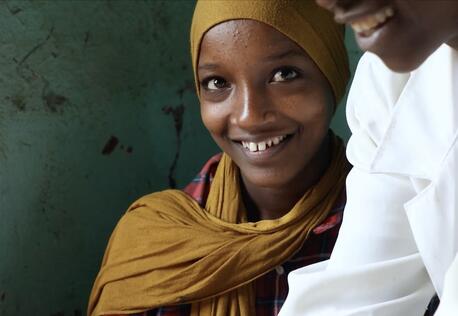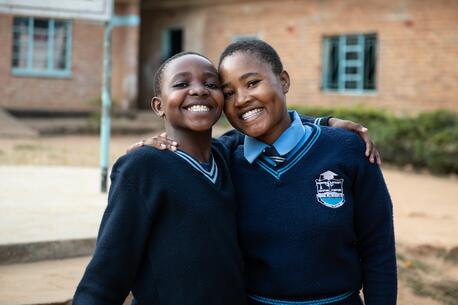Severe Flooding Threatens Lives and Futures in Burundi
The torrential rains began in December, triggering landslides and massive flooding across northern Burundi, one of the world's poorest countries. Roads, bridges and crops have been destroyed, livestock killed and vital water access points washed away. Houses built of mud bricks virtually melted in the rain, leaving hundreds of families with nowhere to go.

Evelyne, a young mother, sits stunned in the remnants of her house, which collapsed overnight. "I am desperate," she says. "I have no idea where I am going to sleep tonight. We have lost everything."

As the flash floods began, the UNICEF USA Mercury Fund rushed $100,000 to expedite emergency response efforts. The Mercury Fund provides immediate, flexible support to help UNICEF country offices reach vulnerable children in the crucial early days and weeks of an emergency. The fund also helps communities build back stronger, incorporating disaster risk reduction measures to protect them from future environmental crises.

Even before these disastrous floods, some 1.74 million people in Burundi, including 976,200 children, were in need of humanitarian assistance. In 2019, the country experienced outbreaks of cholera and malaria, and there are concerns that the ongoing Ebola outbreak in neighboring Democratic Republic of Congo could spread to Burundi and other countries in the region. UNICEF Burundi programs provide child protection, education, safe water, vaccinations, malnutrition screenings, Ebola prevention measures and more.

Climate stress has extended and exacerbated Burundi's rainy season. The rapidly changing climate is undermining the futures of children everywhere, according to a new report by a Lancet Commission convened by UNICEF and the World Health Organization. The report found that Burundi has the world's lowest carbon emissions per capita. It is no small irony that the least developed countries — those least likely to contribute to global warming — are often the hardest hit by the effects of climate change.

It will be a long time before families affected by the floods can resume their normal daily lives. UNICEF will be there every step of the way, assisting those who need it most and helping communities build back stronger and safer.
Last year, UNICEF responded to nearly 300 humanitarian emergencies, many of them still ongoing. With your generous support, UNICEF will continue to reach children and families with the assistance and programs they need to build a better future.
All photos © Jean Sacha Barikumutima for UNICEF
HOW TO HELP
There are many ways to make a difference
War, famine, poverty, natural disasters — threats to the world's children keep coming. But UNICEF won't stop working to keep children healthy and safe.
UNICEF works in over 190 countries and territories — more places than any other children's organization. UNICEF has the world's largest humanitarian warehouse and, when disaster strikes, can get supplies almost anywhere within 72 hours. Constantly innovating, always advocating for a better world for children, UNICEF works to ensure that every child can grow up healthy, educated, protected and respected.
Would you like to help give all children the opportunity to reach their full potential? There are many ways to get involved.





